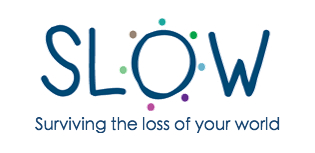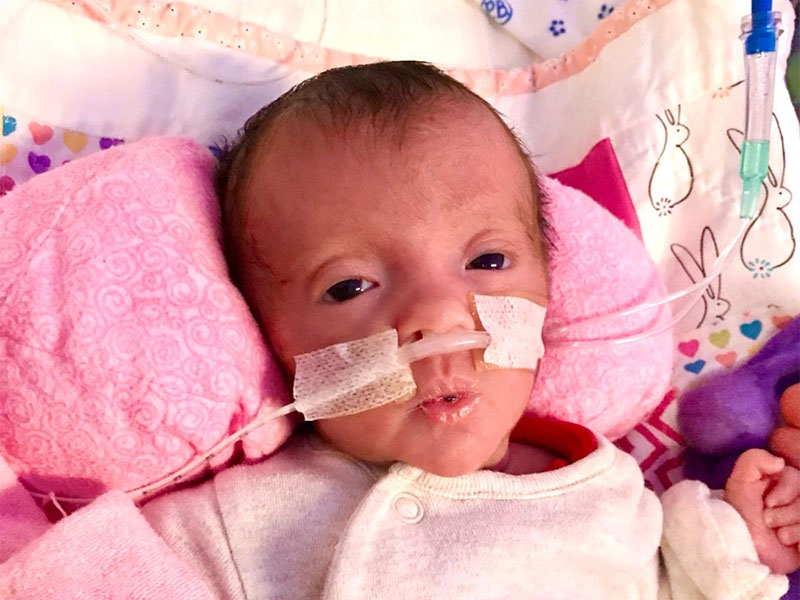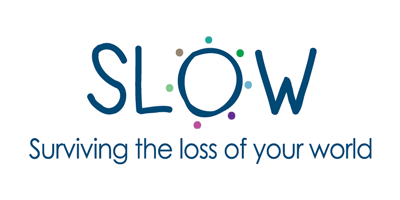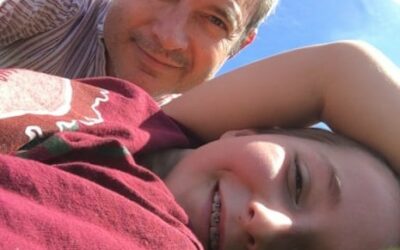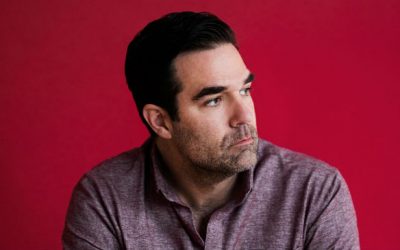As Ramadan is fast approaching, we asked one of our bereaved parents to describe in their words what Ramadan is for them and how ‘surrendering to the process’ of both Ramadan and grief can be a healthy healing process.
We are hugely grateful to Alistair for writing this piece and sharing his experience of Ramadan and how it sits alongside his daily grief. Alistair and Maria’s daughter, Sarina, died in January 2022 when she was 7 weeks old.
Momentary peace as we surrender to the process
Hunger can make it easier to empathise with those less fortunate – but in the days and weeks leading up to the start of Ramadan I naturally worry about managing without food and drink (coffee mostly). I’m also looking forward to perhaps feeling “better” and possibly more focused than usual at times – just so long as thoughts about food and drink don’t take over.
In grief work, engaging our spirit in journaling; continuing bonds; prayer and reading; or turning up to a bereaved parents meeting for support. Trying to hold on to difficult emotions through these various techniques is a form of self-care – and fasting is just another example of such spiritual disciplines or practices.
A healthy healing process also involves us expressing or letting go of our emotions. There’s the feeling of relief at sunset when it’s time to break the fast during Ramadan. The healthy way to express this relief, not surprisingly, isn’t to eat to excess until the following morning (before dawn), just because temptations are permissible again.
As well as trying to sit with God in prayer at five set times each day, Muslims acknowledge Ramadan for one full month every year, by attempting to complete a daily fast alongside their ‘everyday’ life. The month follows the lunar calendar, and falls between March and April this year. The month of fasting is always followed immediately by the day of Eid al-Fitr, a community celebration.
Meditation (with or without faith requirement) is another technique. In the morning, hearing the birds chatter or the animals communicate with each other in the fields. These creatures that prey on others for sustenance, that which believers refer to as the gift from God. The natural world doesn’t seem to acknowledge morbidity in the same way as us but maybe animals’ simple attitude to death helps with their recovery from trauma?
Within our personal search for peace there’s our intention to calm our body, to occupy a slow breath, and a paused focus. Will I find it in my spiritual escapades, and how will the mystery unfold next time?
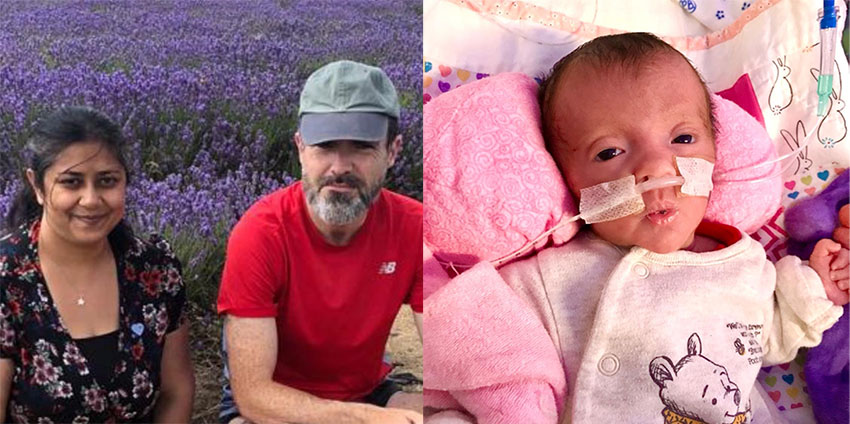
Maria, Alistair and their daughter Sarina
I was training to run a marathon during the month of Ramadan in the first full year after we lost our child, which meant combining fasting with a long distance run (e.g. 20 miles in 3 hours) and shorter distances every week – without water or food during or afterwards, for the remainder of the day. The overlap was inconvenient, but I chose not to try to buy my way to a more convenient situation instead, because some things just can’t be bought.
I am still thankful to God for having made it possible for us to meet our child, even for the short time we did. I am grateful we can cherish our memories, and I am also thankful there’s now a safe place for our children in heaven.
‘Indeed we belong to God and indeed to God we will return’
We couldn’t travel with our children when they died, but we can look forward to eventually following their journey away from this temporary life, away from experimenting with the means of coping as they’re practiced by us.
We will never be entirely free from questioning our own existence after the experience of our child taking their last breath. Daily news reports from Gaza currently reconfirms the stress and anguish we so often feel. War and violence is the tragic outcome of competing group’s different worldviews within a society – where we will always feel others expect us to move on and get better because time has meant our child’s death moves only one way, into the distance.
Although dominant forces tend to create many problems in the world, there’s also a collective mindset that there’s more to be gained than lost in the long run, and that certain ideologies can’t be stopped anyway. We’re all complicit by way of our complacency.
‘Do not carry the worries of this life because this is for God’
I remind myself of this as I say, ‘I intend to keep the fast for tomorrow in the month of Ramadan’ because I believe in this opportunity to re-discover that most things contributing to a typical day in this life aren’t really as important as I give them credit for.
